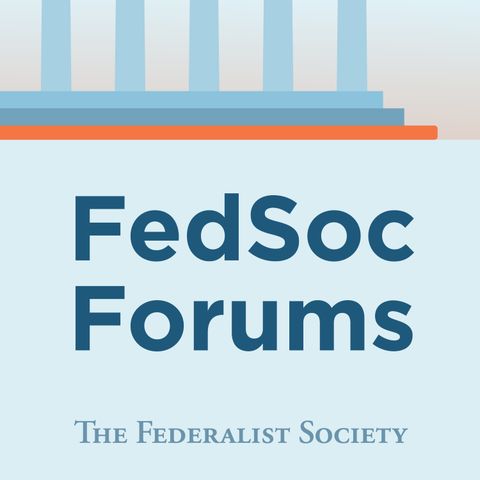Courthouse Steps Teleforum Preview: Frank v. Gaos

Nov 5, 2018 ·
20m 52s
What is the purpose of class actions? To provide compensation to class members? Or to provide compensation for attorneys? The Seventh Circuit has taken a skeptical view of settlements that...
show more
What is the purpose of class actions? To provide compensation to class members? Or to provide compensation for attorneys? The Seventh Circuit has taken a skeptical view of settlements that provide fees for counsel but no meaningful benefit for the class. But there is a circuit split on the question, with the Ninth Circuit approving settlements that maximize attorney fees at the expense of the class, while funneling the class’s compensation to organizations already supported by defendant contributions.
The U.S. Supreme Court granted cert in Frank v. Gaos to consider whether and in what circumstances cy pres is permitted in class action settlements.
Class counsel brought a putative class action against Google alleging Stored Communications Act violations entitling over 100 million class members to $1000/violation statutory damages. Before a motion to dismiss could be decided, the parties settled. Class counsel would receive over $2.1 million (over $1000/hour for every lawyer who worked on the case) and the class would receive nothing. The parties justified this settlement because of a provision providing for cy pres donations: about $5 million to five organizations that would use the money on Internet-related issues. At the fairness hearing, class member Ted Frank objected that the settlement unfairly benefited class counsel at the expense of the class, and objected that the cy pres money was going to organizations affiliated with Google or class counsel, such as Chicago-Kent Law School, the alma mater of one of the attorneys. The district court stated the cy pres did not pass the “smell test,” but approved the settlement under Ninth Circuit precedent, and the Ninth Circuit affirmed.
Ted Frank, litigation director at the Competitive Enterprise Institute, argues that a settlement where attorneys receive millions and the class receives nothing by definition fails the Rule 23(e) requirement that settlements be “fair, reasonable, and adequate.” A bright line rule on “fairness” requiring that attorney fees be proportional to the direct recovery to the class would provide guidance to lower courts, align counsels’ incentives with the class they represent, and reduce the incentive to bring low-value class actions that function as a mechanism to extract fees.
The New Jersey Civil Justice Institute filed an amicus brief in the case. Alida Kass, president and chief counsel, will discuss the questions at issue in Frank v. Gaos. The argument is scheduled for October 31.
Featuring:
Alida Kass, President and Chief Counsel, New Jersey Civil Justice Institute
Teleforum calls are open to all dues paying members of the Federalist Society. To become a member, sign up here. As a member, you should receive email announcements of upcoming Teleforum calls which contain the conference call phone number. If you are not receiving those email announcements, please contact us at 202-822-8138.
show less
The U.S. Supreme Court granted cert in Frank v. Gaos to consider whether and in what circumstances cy pres is permitted in class action settlements.
Class counsel brought a putative class action against Google alleging Stored Communications Act violations entitling over 100 million class members to $1000/violation statutory damages. Before a motion to dismiss could be decided, the parties settled. Class counsel would receive over $2.1 million (over $1000/hour for every lawyer who worked on the case) and the class would receive nothing. The parties justified this settlement because of a provision providing for cy pres donations: about $5 million to five organizations that would use the money on Internet-related issues. At the fairness hearing, class member Ted Frank objected that the settlement unfairly benefited class counsel at the expense of the class, and objected that the cy pres money was going to organizations affiliated with Google or class counsel, such as Chicago-Kent Law School, the alma mater of one of the attorneys. The district court stated the cy pres did not pass the “smell test,” but approved the settlement under Ninth Circuit precedent, and the Ninth Circuit affirmed.
Ted Frank, litigation director at the Competitive Enterprise Institute, argues that a settlement where attorneys receive millions and the class receives nothing by definition fails the Rule 23(e) requirement that settlements be “fair, reasonable, and adequate.” A bright line rule on “fairness” requiring that attorney fees be proportional to the direct recovery to the class would provide guidance to lower courts, align counsels’ incentives with the class they represent, and reduce the incentive to bring low-value class actions that function as a mechanism to extract fees.
The New Jersey Civil Justice Institute filed an amicus brief in the case. Alida Kass, president and chief counsel, will discuss the questions at issue in Frank v. Gaos. The argument is scheduled for October 31.
Featuring:
Alida Kass, President and Chief Counsel, New Jersey Civil Justice Institute
Teleforum calls are open to all dues paying members of the Federalist Society. To become a member, sign up here. As a member, you should receive email announcements of upcoming Teleforum calls which contain the conference call phone number. If you are not receiving those email announcements, please contact us at 202-822-8138.
Information
| Author | The Federalist Society |
| Website | - |
| Tags |
Copyright 2024 - Spreaker Inc. an iHeartMedia Company
